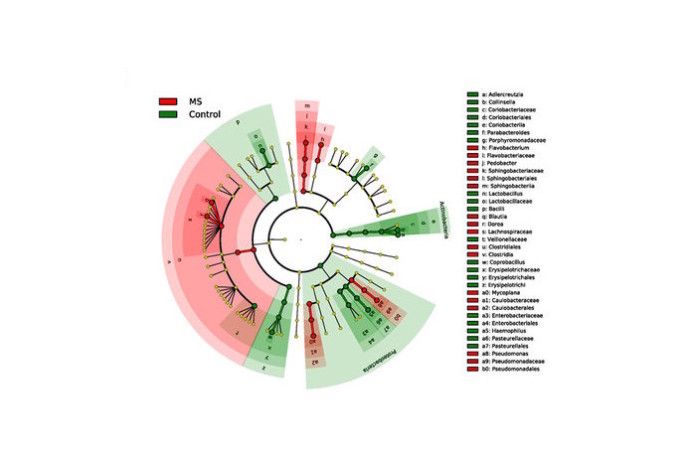
Multiple sclerosis is an autoimmune disease of the central nervous system, and scientists in the field began to investigate the relationship between it and gut bacteria. Researchers began to look in patients suffering from the disease to see how their microbiomes differed from healthy people, and while those differences were small in some cases, there were changes nonetheless.
A report in May 2016 in the European Journal of Neurology showed that there are different characteristics in the microbiomes of children with or without MS. Specific types of bacteria were present at varying amounts in children with multiple sclerosis compared to healthy children. In particular, it was found that multiple sclerosis was connected to an increase in gut bacteria linked to inflammation and a decrease in gut bacteria that are thought to be anti-inflammatory.
A new study in Scientific Reports has also reaffirmed that MS patients have a microbiome that is unlike that of people without MS. “Although preliminary, our data suggest that patients with MS have reduced levels of good bacteria responsible for overall benefits obtained from consuming healthy foods, such as soybean and flaxseeds,” Ashutosh Mangalam, Assistant Professor of pathology at the University of Iowa Carver College of Medicine and senior author of the study.
“We identified certain bacteria which are increased or decreased in the gut of patients with MS compared to healthy controls,” he continues.
In light of the increasing amount of evidence that not only links the microbioe with MS, but the characterization of that relationship, a new review article in the Journal of Interferon & Cytokine Research (JICR) has suggested that the microbiome could be a target for the prevention and treatment of MS.
Until August 6, 2016, the article is freely available on the JICR website. In it, coauthors Justin Glenn and Ellen Mowry of Johns Hopkins University School of Medicine present the various mechanisms by which several scenarios such as altered levels of bacteria in the human gut, bacteriophage activity, viral infections targeting bacteria, or bacterial toxins, could affect the immune system or possibly, play a role in causing autoimmune disorders like MS. Knowing more about the details of these mechanisms may help identify new drug targets or preventive strategies.
“This informative review presents the facts behind the notion that the nature of the intestinal microbial population may influence the development of autoimmune diseases, such as MS,” explains Journal of Interferon & Cytokine Research Co-Editor-in-Chief Ganes C. Sen, of the Department of Immunology at Cleveland Clinic Foundation.
Source: LabRoots


















































